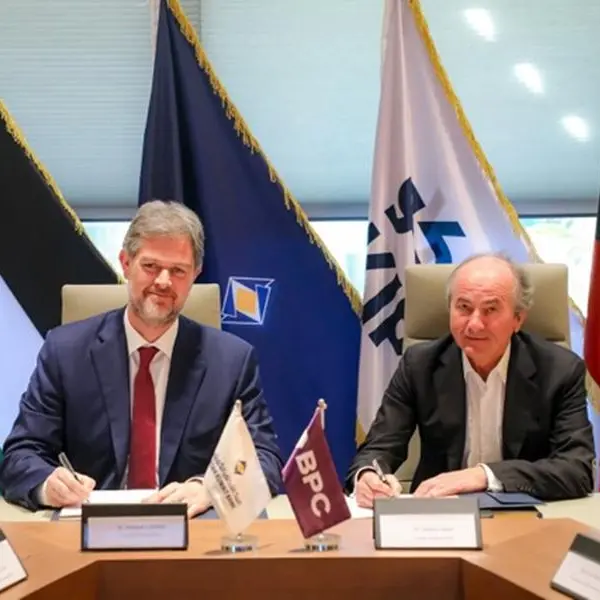PHOTO
H.E. Obaid Humaid Al Tayer, Minister of State for Financial Affairs, participated in the International Monetary and Financial Committee (IMFC) meeting, which took place virtually on 15 October 2020.
During his speech, which he gave on behalf of the countries of the IMF’s Arab Group, H.E. Obaid Humaid Al Tayer praised the continued efforts by the Fund to respond to member’s exceptional needs in the face of an unprecedented shock. H.E. noted that Arab countries have taken a broad range of policy actions, specific to each country’s conditions and outcomes.
H.E. indicated that the size of the fiscal stimulus was modest in the Arab region in view of the stronger health systems in some countries, and the constrained fiscal scope in others. H.E. noted that macro-financial measures, including liquidity support were more widely used, and that Arab countries will continue with exceptional measures so long as required and will adjust them or roll them back as appropriate.
H.E. said: “Despite all the precautionary measures that have been taken, Arab countries still face a heightened degree of uncertainty. The Fund should be prepared for a potentially prolonged downturn, a possible second wave of infections, and second round of financial tightening, which could severely limit countries’ access to finance.”
During the meeting H.E. emphasized a few points such as highlighting the fact that exceptional times demand exceptional responses, including access to IMF facilities or further modification of existing facilities. H.E. also added that the Fund should do its utmost to support those countries that requested financial support but have not yet received it – noting that this calls for more flexibility, which may entail higher risks, but with appropriate safeguards. H.E. noted that such safeguards must not be too onerous on countries that they prevent access to Fund resources.
H.E. said: “It is imperative for us all to work together to help vulnerable countries to attain access to vaccines and treatment and to meet their financing needs. The IMF should continue to support Arab countries’ efforts to tackle rising debt vulnerabilities caused by this pandemic.”
H.E. added: “The pandemic has highlighted the importance of buffers and resilience, including taking advantage of new technologies and digital solutions as a way toward more inclusive growth.”
IMFC meetings are held within the IMF and WBG annual spring meetings. Advice and reports are provided to the IMF Board of Governors on the supervision and management of the international monetary and financial system, including on responses to unfolding events that may disrupt the system.
© Press Release 2020
Disclaimer: The contents of this press release was provided from an external third party provider. This website is not responsible for, and does not control, such external content. This content is provided on an “as is” and “as available” basis and has not been edited in any way. Neither this website nor our affiliates guarantee the accuracy of or endorse the views or opinions expressed in this press release.
The press release is provided for informational purposes only. The content does not provide tax, legal or investment advice or opinion regarding the suitability, value or profitability of any particular security, portfolio or investment strategy. Neither this website nor our affiliates shall be liable for any errors or inaccuracies in the content, or for any actions taken by you in reliance thereon. You expressly agree that your use of the information within this article is at your sole risk.
To the fullest extent permitted by applicable law, this website, its parent company, its subsidiaries, its affiliates and the respective shareholders, directors, officers, employees, agents, advertisers, content providers and licensors will not be liable (jointly or severally) to you for any direct, indirect, consequential, special, incidental, punitive or exemplary damages, including without limitation, lost profits, lost savings and lost revenues, whether in negligence, tort, contract or any other theory of liability, even if the parties have been advised of the possibility or could have foreseen any such damages.




















